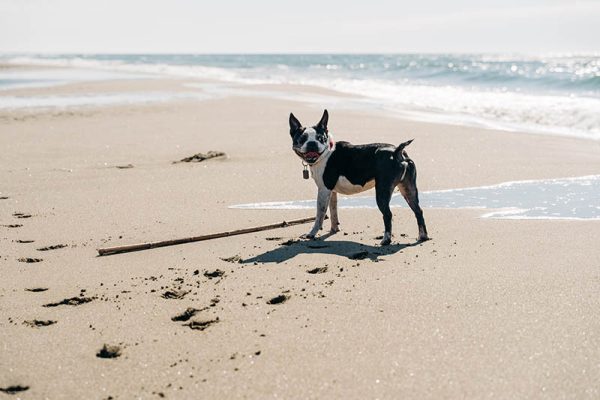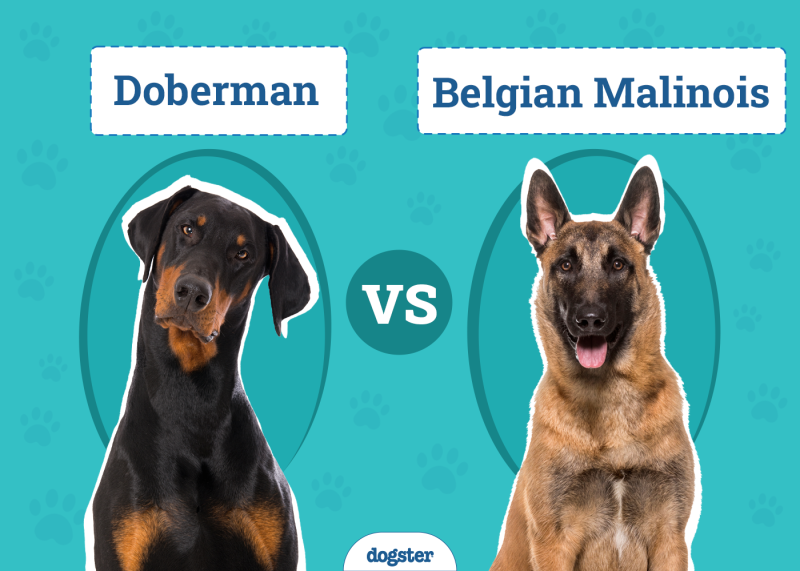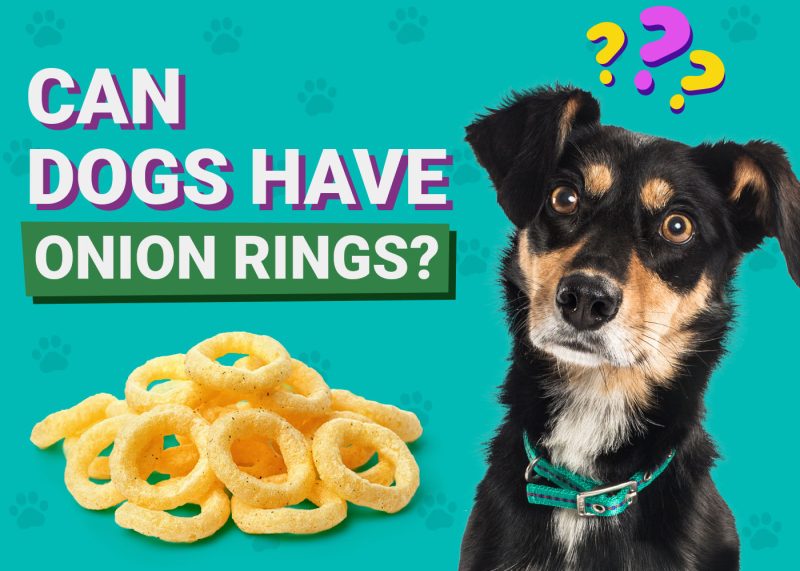If you aren’t a dog lover, you may not understand the connection between an owner and their canine best friend. Dogs are often the ones we turn to when things happen. Hugging a dog can improve things if we have a bad day. Cuddling with your dog can help ease the tension when you feel overly stressed. When events take place in our lives that leave us sad and feeling depressed, dogs are often our comfort. With this being the case, it makes you wonder: Do dogs know when you’re sad?
There have been studies conducted to determine whether dogs can show empathy. Of these studies and people’s interactions with their pets, dogs seem to sense when someone is sad. Let’s take a deeper look at your dog and its ability to tell if you’re sad so you can better understand your relationship with your pet.

People and the Connection With Dogs
You may feel that your dog understands you better than any person out there. In some cases, this is true. It’s not uncommon for humans and dogs to form strong bonds. They forgive us when we mess up and offer us the most unconditional love out there. We, as humans, even open ourselves up to known heartache when we welcome a dog into our hearts.
With their lifespans being so short compared to ours, we know we’ll lose them one day. But why is this bond so strong? With both humans and dogs being social creatures, it makes sense. When you add in the nearly 20,000 years of living together, the explanation falls into place completely.
Over the years of living with humans, dogs have learned how to get our attention when they need something and shower us with love. They offer cuddles, licks, and big old puppy dog eyes when they sense we need them. Dogs are like us in a lot of ways. One of those ways is through the neurotransmitters in their brains. They are hardwired to be similar to us when it comes to emotions. This hardwiring and the fact dogs have adapted to life with humans makes it easier to understand the bond we can share with our beloved pets.
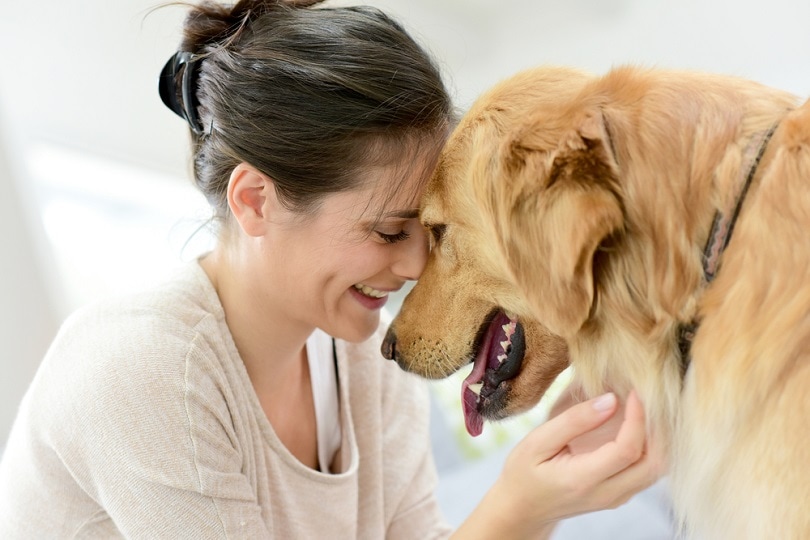
Recognizing Your Sadness
Dogs understand a lot of things. When you’re ready to take your dog on a walk, you probably have a way of cluing them in. Perhaps you grab the leash, or maybe you say a certain word like “walk” or “potty.” This shows how dogs can pick up on cues we give them. It also shows they are intelligent enough to understand lots of words we use. If that wasn’t the case, training them would be much more difficult. When it comes to recognizing your sadness, however, your pooch doesn’t pick up on the words you use. They pick up on you. This is thanks to the bond you share with your pooch and how well they know you.
A 2018 study published in Learning & Behavior showed that dogs not only understand when you’re sad or in distress, but they want to help. This study took 34 dogs of different breeds and placed them in a situation where they would hear their owners crying. Another aspect of the experiment allowed the dogs to listen to their owner’s hum instead. The results showed that dogs were increasingly concerned about their owners when they cried, as their heart rates changed.
Also, most of the dogs didn’t simply sit and allow their owners to be upset. Instead, they pushed through the door separating them and went in to offer a bit of comfort.
Previous studies showed dogs reacting to babies and strangers crying. This new study, however, shows that not only do dogs know what crying and sadness are, but they also take the initiative to comfort their owners when it’s taking place.
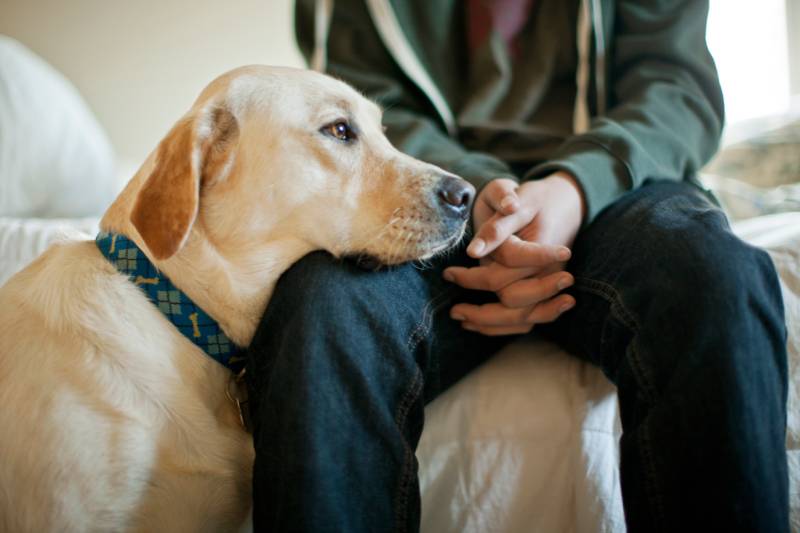
What Dogs Do When You’re Sad
When you show signs of sadness, your dog is most likely going to react. Often, the route they take to comfort you is known as mirroring. You’ll find that they approach you with their head bowed and their tail tucked. This is your dog’s way of showing that when you’re sad, they understand and feel the same. You may also notice they offer licks or even whine a bit. This is another way your dog tries to show empathy for the situation. They simply want to be with you so you can use them to start feeling better.
Some dogs, however, go above and beyond. They will come to check in on you, offer a lick or cuddle, and then try to distract you from what has you feeling down. If your dog takes this route when you’re feeling down, they may offer you their favorite toy or try to engage you in play. You’ll even find that some dogs understand when you need a moment alone and will oblige you. With that said, however, don’t be surprised if the alone time is fleeting and doesn’t last as long as you’d expect.

Emotional Absorbers
One thing you must be careful of is allowing your dog to take on your sadness. According to the event that’s taken place in your life, you may feel down for quite some time. With dogs being as in tune with us as they are, this can lead to them becoming sad as well. Depression and sadness in your dog can be concerning if it goes on too long.
If you notice your dog is eating less, losing interest in playing or other activities they normally enjoy, or simply seeming withdrawn, they could be depressed. If this happens, it is up to you as a loving dog owner to work at fixing the situation. Spend time with your dog, take them out for a fun activity, and simply show them an enjoyable life again. They may absorb your emotions, but when you start to come around, most likely they will too.
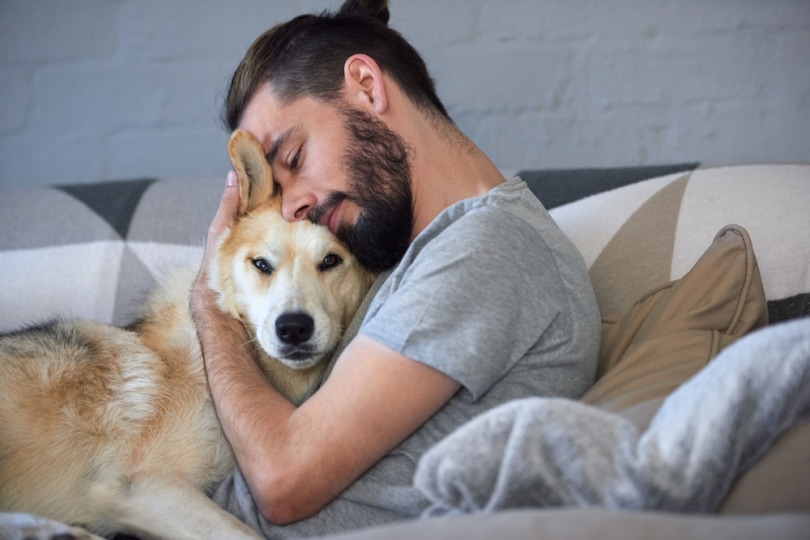

Conclusion
Dogs are clearly humankind’s best friend. They connect with us in a way that most other animals simply cannot. When you are sad, they are going to know. They are also going to try and make things better if they can. Once you’re happy again, the doggo who helped you through the hard times will be waiting at your side to help you enjoy fun and happiness again.
Featured Image Credit: Iryna Kalamurza, Shutterstock


